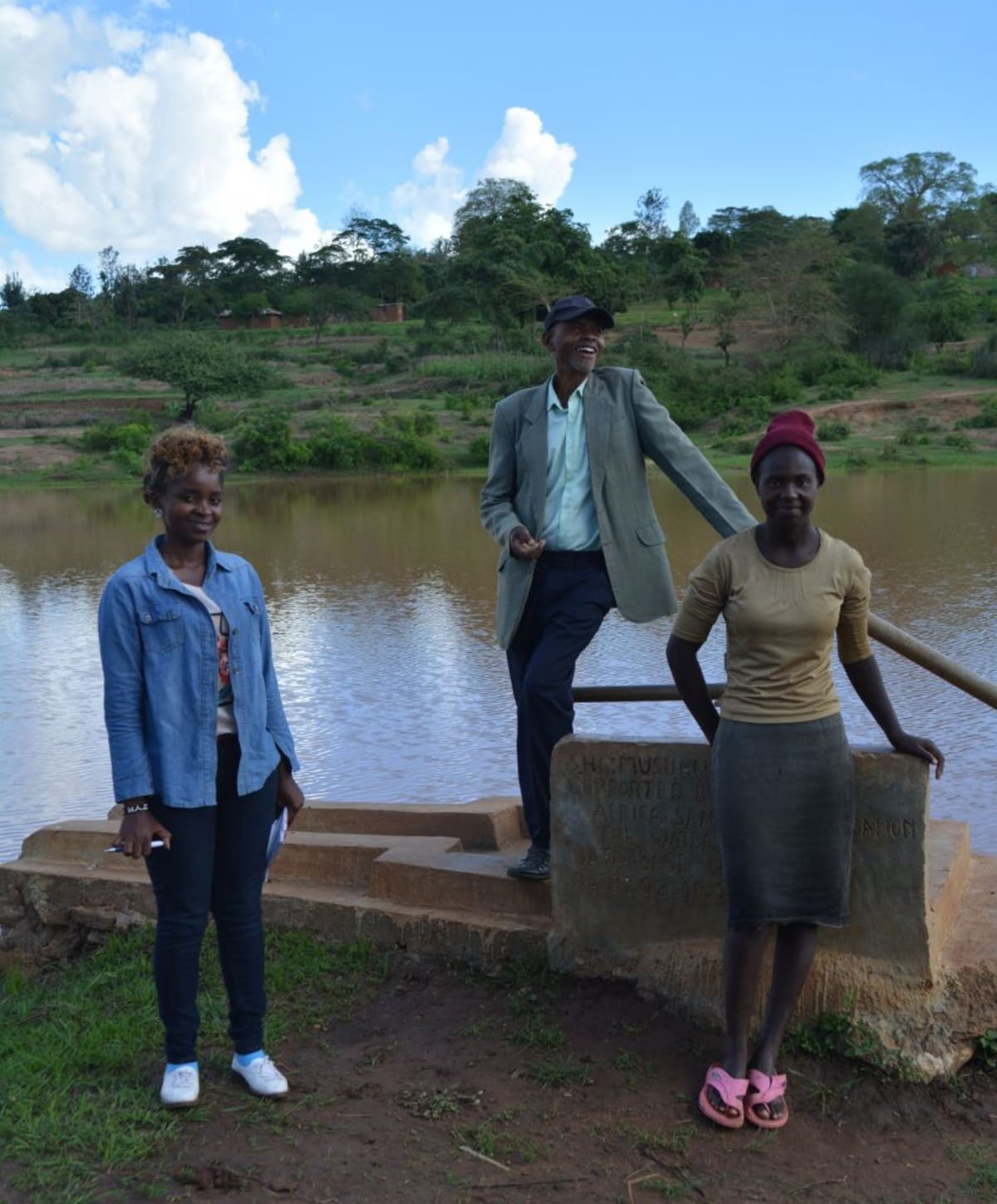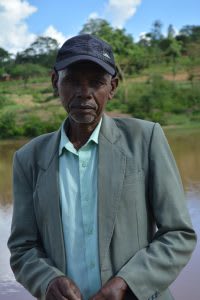This project is a part of our shared program with Africa Sand Dam Foundation. Our team is pleased to directly share the below report (edited for clarity, as needed).
Welcome to the Community
Musunguu Self-Help Group is located in the highland of Makueni County. The main economic activity in this area is horticultural farming. All farming here is solely dependent on River Tawa.
There is a sand dam on this river, and the majority of farms get water from pumps that rely on this sand dam. In recent years, intense farming has affected the water supply at this particular dam. Droughts have further exacerbated this strain, and there is now constant competition at the sand dam for who can get in line first for water. Women try to get there early enough so they can have water for household chores, but there are always long lines at the dam.
Water Situation
Water at the sand dam is accessed at scoop holes dug by community members. These holes in the riverbed don't have to be dug very deep to reach the water provided by the dam.
Many farmers are using petrol pumps to transport water from the dam to their crops. Farmer Richard has noticed this is a common practice, and said, "We fear that the water quality from our current water source is heavily polluted. Everyone is using petrol generators to pump water from the river, and this may be a source of pollution to the water." Thus, locals have made a request for help in building a shallow well adjacent to the sand dam. In reality, we conducted a water quality test and found that the water is contaminated, but not by petrol. The drinking water fetched from the scoop holes is contaminated by fecal matter. Because the shallow holes are open sources at the surface, they are unprotected from contamination.
Women and children commonly use covered 20-liter plastic jerrycans to carry water home from the sand dam. Since the river is a ways away, community members aim to make as few water trips as possible. Large water reservoirs at home help minimize the trips to the dam. These range from 200 to 300 liters, depending on what households can afford. Families without young children try their best to have more water storage, since young people are charged with helping their families fetch water. You can see examples of some of these containers under the "See Photos & Video" tab.
The trip to fetch water isn't what consumes a lot of time; scoop holes are so overused that women and children spend most of their time in line. A hand-dug well won't only protect water from outside contamination (such as fecal matter!), but will provide another option that decreases congestion at the sand dam.
Sanitation Situation
Since we've already been engaging with this community for three years, every single household now has a pit latrine. Almost the same number of families have bathing rooms reserved for personal hygiene. Over half of people have a hand-washing station on their property. Dish racks and clotheslines are also being used to safely dry belongings. Garbage is disposed of in a compost pit, which is then used as fertilizer on farms.
Plans: Hygiene and Sanitation Review
Since this group has attended training before, we will continue by filling in any gaps in understanding. After discovering the contamination of water in the scoop holes, we've decided to focus on water point maintenance, water handling, water storage, and treatment.
Plans: Hand-Dug Well
We plan to excavate to a depth of at least 25 feet. Our experience has shown us that this yields an adequate and sustainable supply of water from the dam. This well will be lined with concrete and fitted with an AfriDev pump. With this well adjacent to the sand dam, farmers and their families will have a protected source of water that's free from surface runoff. While people get their drinking water from the well, scoop holes become reserved for irrigation, watering animals, and domestic uses.

 Protected Dug Well
Protected Dug Well
 Rehabilitation Project
Rehabilitation Project






















